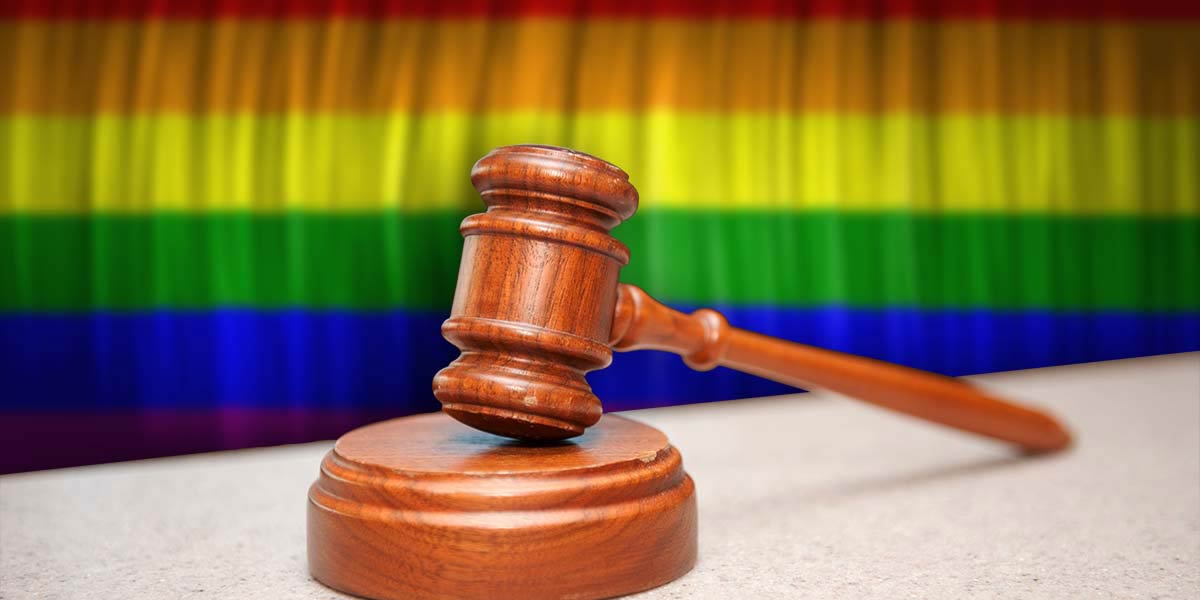Namibia | High Court refuses to recognise foreign same-sex unions

The Namibia High Court says that while it in principle supports recognising same-sex unions it does not have the legal authority to change the law.
On Thursday, a three-judge bench of the court in Windhoek reluctantly dismissed two applications relating to the denial of immigration rights to the non-Namibian same-sex spouses of two Namibians.
The couples had entered valid legal partnerships outside of Namibia, but their relationships were not recognised for immigration purposes because they are in same-sex partnerships. The country does not offer any legal recognition of same-sex relationships.
Daniel Digashu and Johan Potgieter approached the High Court in 2017 ater the Ministry of Home Affairs and Immigration denied Digashu (a South African citizen) a work permit based on their same-sex marital status.
Similarly, Namibian born Anette Seiler-Lilles and German-born Anita Seiler-Lilles approached the High Court of Namibia after Anita was denied permanent residence on the grounds of their marital status.
Thursday’s High Court judgment, delivered by Judge Hannelie Prinsloo, held that discrimination based on sexual orientation was indeed prohibited by the Constitution of Namibia.
The judges, however, dismissed the couples’ applications because they believe the court cannot legally overrule a 20-year-old judgement by the higher Supreme Court which found that same-sex relationships are not recognised under the Immigration Control Act.
The High Court judges criticised the old Supreme Court judgement and asserted that it’s time that same-sex relationships are formally accepted in Namibia.
The Southern Africa Litigation Centre (SALC), which supported the couples, said that although disappointed, the applicants had already anticipated that the matter would end up in the Supreme Court. They are hopeful that the Supreme Court will take the opportunity to overturn its 2001 decision.
“In both cases, the couples had been together for more than a decade; they share their lives and constitute a family,” said Anna Mmolai-Chalmers, from SALC. “No one realises the immense financial and personal costs of the litigation on the applicants. We urge the State to ensure recognition of the rights of all persons in Namibia.”
“A judgment like this is so deeply personal, and I am devastated,” said Ian Southey-Swartz, a Namibian citizen and Programme Manager at the Open Society Foundations-Africa. “I have been happily married for eleven years and desperately want to live in my country with my legal spouse. Instead, the current legal position has turned me, and many others in my position, into second-class citizens, forced to choose between our country and our family.”
LGBTIQ+ Namibians have made several gains in the High Court in recent months. On 12 November, a transgender woman was awarded damages after being beaten, kicked and verbally abused by the police.
On 13 October the High Court also ruled that two-and-a-half-year-old Yona Delgado-Lühl, who was born via surrogacy in South Africa to a same-sex couple – Namibian Phillip Lühl and his Mexican husband, Guillermo Delgado – is entitled to Namibian citizenship by descent.
It also found that unlawful discrimination against Namibians because of their sexual orientation violates the country’s Constitution, which guarantees equality for all citizens; the first such High Court ruling. Sadly, the government is appealing the decision.
Leave a Reply